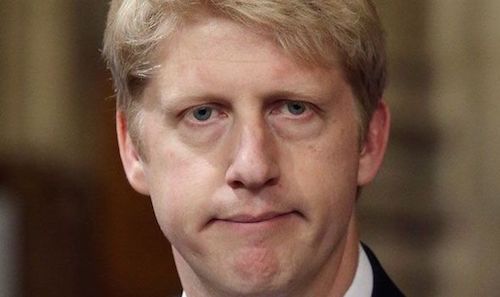Uni fees to rise: What does this mean for you?
The government has announced that from 2017, unis in England should be allowed to rise tuition fees above £9,000. But how will this affect you?
 Credit Andrew Wales – Flickr
Credit Andrew Wales – Flickr
It’s been a pretty tough few months for students! First, we had to endure listening to Jo Johnson defend retrospective changes to student loan terms – a move that would’ve been considered illegal had it not been the government themselves making the change.
We learned that apparently the change is able to go through because it says somewhere on page 3 of the loan contract that the ‘terms can change at any time’. Great!
And as if that wasn’t enough to ruffle students’ feathers, shortly after unis across the country started advertising next year’s tuition fees as above the official cap of £9,000, before it’s even gone through parliament (although we knew a hike was on the cards).
They announced that they were allowing universities to increase fees by the forecast inflation of 2.8%, meaning that those currently charging £9,000 will be able to charge £9,250 next academic year, and part-time students are likely to pay £6,935 instead of £6,750.
The latest now is that not only will unis be permitted to charge £9,250 in 2017, but the government have indicated that a second wave of fee increases is on the cards for 2018. In what they're calling a second "trial year," universities will be allowed to charge £9,500 regardless of teaching standards, while they work on establishing the 'Teaching Excellence Framework' that will regulate fees in the future.
There’s a lot going on at the moment, so there’s a lot to take in. But whilst students should be angry about these changes and the way the government has gone about it, it's important to be reassured that there’s very little that will change regarding how you pay back your loan (more on that later).
This is more a matter of principle than anything else: As one Labour MP said in parliament on Tuesday, Conservatives are teaching students a really tough lesson – that they cannot trust their own government.
What’s on this page?
Your questions answered

Is the increase definitely going ahead?
According to a letter released by students’ flavour-of-the-month, Jo Johnson, it’s looking likely. However, it’s still not officially set in stone (we're clutching at straws here).
Many MPs have come out in strong opposition to the fee hike, and have said they’ll push for it to be debated in parliament before anything is made official.
We were pretty confused as to why universities would choose to advertise fees higher than the official cap before being given the go ahead (one Lib Dem MP dubbed the move as “disgraceful arrogance” from universities).
However, the BBC writes that according to consumer protection regulations, unis would have to announce the fee increase before the next application period (early sept 2016) to be legally allowed to charge higher fees in 2017.
Suppose that explains why they took the risk and announced the hike prematurely, eh!
Who’s charging more than £9,000?
 Originally back in 2012 when the coalition government trebled tuition fees, the idea was that unis would be charging between £6k and £9k per year dependent on quality, but as there was nothing put in place to regulate this, everyone jumped on the band wagon and started charging the higher bracket of £9k.
Originally back in 2012 when the coalition government trebled tuition fees, the idea was that unis would be charging between £6k and £9k per year dependent on quality, but as there was nothing put in place to regulate this, everyone jumped on the band wagon and started charging the higher bracket of £9k.
The government have recently admitted that this was wrong, announcing that they were introducing a new ‘teaching excellence framework’ (TeF) that would permit universities offering a higher standard of teaching to charge fees above the bracket (rather than force unis deemed unworthy of £9k per year fees to reduce their fees).
A government spokesperson told the BBC:
The teaching excellence framework will allow universities to maintain fees in line with inflation only if they meet a quality bar, as set out in the recent Higher Education White Paper.
Well, the quality bar must be pretty low, as the BBC reports that so far no university has failed to meet the criteria to charge above the £9,000.
Update: the latest
The latest news is that the government have announced that in 2018, universities will be allowed to charge £9,500 during what they're calling a second "trial year" before they begin using the Teaching Excellence Framework to decide which unis will be permitted to raise fees each year in line with inflation after that.
The Teaching Excellence Framework will split universities into the following categories:
- Gold: Those universities that show “outstanding levels of stretch that ensures all students are significantly challenged to achieve their full potential”
- Silver: Unis that show “high levels of stretch that ensures all students are significantly challenged”
- Bronze: Unis where “provision is of satisfactory quality … however, the provider is likely to be significantly below benchmark in one or more areas.”
A spokeswoman for the Department for Education has said that after this two year trial period:
Universities will not be able to increase their fees unless they pass rigorous quality standards.
But until then, it looks like students will just have to put up with two years of increased costs, even if the quality of teaching on their course is sub-standard!
Is university worth £9,000+ a year?
 This one's obviously subject to personal experience, but many of you have been complaining to us over the years that you don't believe your tuition to be worth £9k, and the majority of you don't think uni is good value for money.
This one's obviously subject to personal experience, but many of you have been complaining to us over the years that you don't believe your tuition to be worth £9k, and the majority of you don't think uni is good value for money.
As one of our readers Harry Dawes commented this week:
The standard of learning at some uni's isn't even worth £250 let alone £9,250!!!
Liberal Democrat university spokeswoman, Baroness Lorely Burt, has said:
Linking fees to teaching quality in this way is unacceptable. Enabling any university that scrapes a 'meet expectations' rating to increase fees by 2.8% shows that this isn't about teaching quality at all.
If universities need further support then let's have a proper discussion about where that money comes from, rather than pretending that this is somehow a quid pro quo for providing the quality of teaching students should already be able to expect.
Will the hike affect current students?
 Unfortunately, it looks like current students could also be affected by the hike. If the fee cap removal goes ahead, universities will be able to increase fees along with inflation (estimated 2.8%) each year.
Unfortunately, it looks like current students could also be affected by the hike. If the fee cap removal goes ahead, universities will be able to increase fees along with inflation (estimated 2.8%) each year.
This means that if you are currently at university you're likely to see your fees go up to £9,250 in 2017, and if you're still around in 2018 – you could be paying £9,500 if the government decides to apply the second hike to current students. Essentially, if the cap is removed, the flood gates are open.
The only current students that won’t be affected will be those graduating in 2017.
Where the second wave of fee increases is concerned, it remains unclear whether current students will be affected or not. The BBC reported that courses "starting in autumn 2018" will charge £9,500, but it seems unlikely that the first wave of inflation (to £9,250) would apply to current students as well, whereas this second wave wouldn't.
We'll keep our ears close to the ground and let you know when we do!
The good news!
 Believe it or not, there is some positivity amongst all the rotten news this week!
Believe it or not, there is some positivity amongst all the rotten news this week!
This won’t affect your monthly loan repayments
One thing we need to be clear about here is that regardless of whether your uni charges £9,000 or £20,000 a year in tuition fees – you’ll only ever repay 9% of your wage packet each month when you’re earning over £21,000 per year after graduating.
It’s easiest to consider the loan amount plus interest rates as quite separate from your repayments for this reason.
This increase in fees will only really affect high earners – those who will be earning enough to pay back their entire loan and interest before the 30 year period is up (after which the loan is wiped off). Anything you don’t manage to pay back before the 30 years is up will be written off – this is why many experts suggest thinking about your loan repayments as a ‘student tax’ rather than a debt.
From our rough calculations (which are difficult due to a number of unpredictable factors) only those who have a starting salary of around £35,000+ will be worse off in terms of repayments due to this fee increase.
The government’s recent choice to freeze the amount you need to be earning before you start repaying the loan at £21,000 (instead of letting it rise with inflation) is more likely to affect you, as this change means you’re likely to start repaying more of your loan and quicker – as a result, you'll probably pay off more before the 30 years is up.
Maintenance Loans also due to rise
Another silver lining amongst all this (although it’s the least they can do, really!) is that maintenance loans are also due to rise with inflation, at 2.8%.
The government applied a token rise to maintenance loans this year to make up for scrapping maintenance grants, but you've shown us that the rise is nowhere near enough and barely covers rent for some students.
If this all goes through, next year students living at home with parents will receive £7,097 a year in loans (previously £6,904) whilst students living away from home and outside of London will get £8,430 (previously £8,200), and those living away from home and in London will get £11,002 (previously £10,702).
Got any questions about the tuition fee rise that we haven't covered? Give us a shout in the comments section below or get in touch with us directly.








